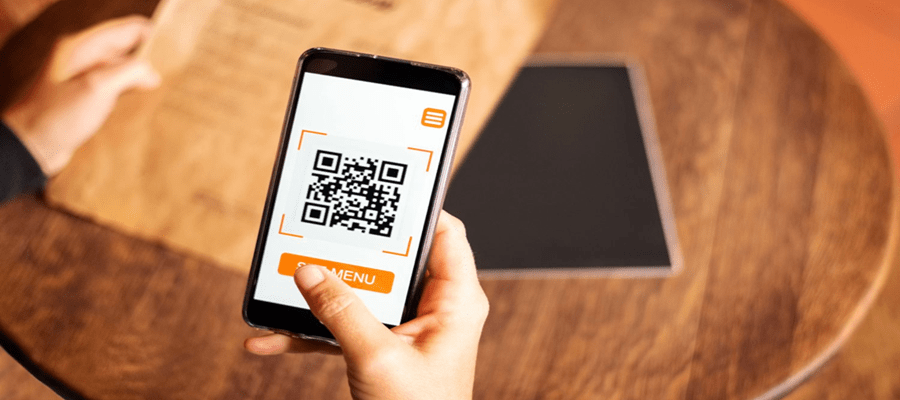
10 Most Common Misconceptions About POS Billing Software: Debunking Myths, Uncovering the Facts
Position of sale, or POS billing software, is the key element in modern retail and business operations. This is one solution that streamlines transactions, tracks available inventory, generates sales reports and elevates customer experiences. Despite its importance, there are many misconceptions surrounding POS systems. These myths prevent many businesses from embracing efficient solutions, and very common errors happen with the use of POS software. In this article, we're going to debunk the most common myths regarding POS billing software to offer clarity and actionable insights to businesses that would look to optimize their operations. Along the way, we'll touch on POS software myths, common POS mistakes, and the facts businesses need to know.
1. Myth: POS Software Is Only for Large Businesses
The most common myth is that POS software is good only for huge businesses with high sales volumes. This makes small and medium-sized enterprises believe that they do not need a POS system, or worse, it might be complicated and pricey for their operations.
Reality: POS software is designed for businesses of all sizes from small retail shops to large chains. There are various solutions available, many of which are tailored to meet the needs of SMEs. For example, small businesses can achieve greater cost-effectiveness and scale with cloud-based POS systems at very low initial costs. Iff a small business were to start using a POS system at the early stages of company development, it could streamline its billing, manage its inventory efficiently, and provide better customer service.
2. Myth: POS Billing Software is Too Pricey
The most prevalent mythology circulating today is that the usage of POS billing software is quite pricey. Several entrepreneurs believe that installing a POS system costs a great deal of money since a heavy expenditure is involved, both for hardware and software as well as for upkeep.
Fact: Out of the many reasonably-priced POS systems available today, there are pricey ones with advanced features and customization. Most of the cloud-based POS systems make use of subscription-based pricing, whereby a company pays for services over time instead of making a payment upfront. In addition, long-term savings are achieved through effective monitoring of inventory and minimizing possible human mistakes, with improved sales tracking. Most of the POS solutions adapt to different budgets and operational needs.
3. Myth: POS Systems Are Only Meant to Process Sales
Most business owners, then, believe that the point of sale systems are just meant to process transactions and serve a business owner with nothing more than that when it comes to payment processing. And in this oversimplification lies the basic limitation of what POS software can offer in a business environment.
Fact: Modern POS billing software can do a lot more than print your receipt. It includes inventory management, sales reporting, analyzing consumer behaviour, managing loyalty schemes, and even performance analysis. Advanced integrated systems with an accounting package automatically automate bookkeeping.
In short, the POS system is an all-in-one business management tool to boost efficiency, productivity, and profitability.
4. Myth: My Business Processes Are Too Complicated To Work On A POS System
There are many claims doing rounds that POS systems are complicated and challenging to operate, mostly in the mouths of employees who are less knowledgeable about technology. This is thereby allowing most businesses to not opt for POS software, assuming that their employees won't be able to handle using the software.
Fact: The majority of modern POS billing software is designed with user-friendly interfaces that require minimal training. The idea is to make the system intuitive enough that employees can easily navigate through tasks such as ringing up sales, tracking inventory, and other customer data. One of the benefits of a POS system is that many allow for an online tutorial, customer support, and training modules that provide an easy way for businesses to onboard staff and have them up to speed rapidly. Employees who have been trained can then ring up transactions much quicker with fewer errors than if the task were done on a manual system.
5. Myth: POS Systems Are Susceptible to Cyberattacks
Today, businesses are highly concerned about the issue of cybersecurity. Therefore, they refrain from implementing a POS system in their business premises and believe that POS software contains weaknesses and break-ins from cyberattacks targeting their confidential information.
Fact: Though there are risks associated with every digital system, a good quality POS billing software provider ensures that effective protocols like encryption and tokenization are followed for secure data. For example credit card information or customer details. Any cloud-based POS solution generally employs the best-in-class encryption practices but follows Payment Card Industry Data Security Standards for keeping data secure. Cyber attacks can be minimized if the software is updated regularly and best practices are followed.
6. Myth: Manual Billing Is More Reliable Than POS Systems
According to some, manual billing is more reliable since it does not incorporate potential technical failures or software errors. They fear a POS system will crash or malfunction, thereby disrupting operations.
Fact: POS systems are significantly more reliable and accurate than manual billing, as the latter tends to involve human error, slow processing times, and inefficiency. Manual billing often results in mistakes like overcharging, unaccounted sales or stock management. A POS ensures proper records, real-time sales reports and real-time information regarding the stock level. No system is free from technical faults; however, most POS software providers have excellent customer service and troubleshooting to help rectify such faults immediately.
7. Myth: Installed POS Systems Require No Maintenance
The POS system is installed once; no further maintenance should be required there's the myth. Many businesses neglect software updates and regular system checks, believing that when a POS system is installed, it will never need any more maintenance.
Fact: Like all software, a POS system needs regular updates and maintenance to remain secure and functional. Failure to update the system may allow vulnerabilities or bugs that could impact the performance of the software. Maintenance means the hardware card readers or scanners are in good working order, as is the software, so business owners have all the latest features and security available. Usually, the providers automatically download updates, requiring little effort by business owners to maintain operations.
8. Myth: POS Systems Restrict Flexibility in Business Operations
Some business owners believe that POS systems tie them up to certain methods of handling transactions or customers. They seem to think that such systems limit their ability to respond to new business models or operational changes.
Fact: POS systems can provide more flexibility. Many modern POS solutions are far from hard and fast but very adaptable to meet the requirements of any business. Whether it has to do with setting up distinct pricing strategies, offering discounts, running promotions, or handling customer loyalty programs, POS systems can help operate a business efficiently but afford the freedom to change things at will. In addition, cloud-based POS systems can be accessed from anywhere, giving flexibility to business owners in managing their operations from anywhere in the world.
9. Myth: All POS Systems Are the Same
Perhaps the most common myth about POS is that by and large, all systems are created equal, and business owners make system selection decisions purely on price and not on functionality. The result is often the wrong system for the job being chosen for individual businesses.
Fact: Not all POS systems are created equal. Different industries have different functionalities that they require from their POS systems. For example, a retail shop would need superior inventory management whereas a restaurant might find a need for more desk management and to keep track of the orders. In this regard, businesses must first understand their needs and then settle for a POS system that gives them the features they need, such as CRM, loyalty programs, inventory tracking, and sales reporting. If chosen wisely, it leads to efficiency and higher customer satisfaction.
10. Myth: Change to a Point-of-Sale System Affects the Business Operations
Most business people shy away from changing either manual or old systems since they are afraid that changes to a new point-of-sale system are bound to affect how they run their business, causing possible downtime or chaos for the employees and customers.
Fact: While any migration to a new POS system does require some initial configuration and training, most current POS providers can seamlessly onboard and migrate systems. More and more of them allow importing data like inventory lists or customer databases directly into the new POS software, effectively reducing the disruption itself. Switching for long-term benefits: faster transactions, better data tracking, and more streamlined inventory management far outweigh the inconveniences of making the transition.
Common POS Mistakes: Pitfalls in Using a POS System
While working to dispel these myths, it is equally important for businesses to be aware of the common mistakes committed through POS billing software usage. Here are a few pitfalls to avoid:
1. Neglecting employee training: Even the most user-friendly POS system requires proper training. Failing to train staff can result in errors, slow service, and frustration.
2. Lack of updating of software: Most businesses let their POS software go un-updated for several months, something that would leave them vulnerable to security attacks and software glitches.
3. Failure to utilize the full potential of features: Most businesses only use the most basic form of transaction processing while ignoring advanced features like reporting sales, managing CRM, and inventory management.
4. Choosing the wrong system for your industry: Not all POS systems are the same, and you need to choose one designed for your kind of business.
5. Data is not secured properly: The POS system needs to have suitable data security against the theft of customers' information or business account records.
Conclusion
And though POS billing software can be much more than the simple process of a sale, letting go of the myths and seeing what the true capabilities of a POS system are will allow companies to make proper decisions that lead to increased efficiency, better customer service, and overall business success. So invest in the right POS system for your needs, watch out for the common mistakes, and you'll be able to unlock the full potential of this essential technology.


